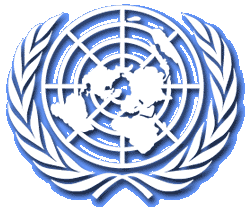|
 The
United Nations has declared 2002 as the International
Year of Ecotourism. The World Tourism Organisation
(WTO) and the United nations Environment Program (UNEP) have taken
the lead in organizing activities for this Year at the international
level. The UN declaration is a testimony of the growing importance
of ecotrousim, not only as a sector with a great potential for economic
development with UNEP principles for Implementation of Sustainable
Tourism.- especially in remote areas where few other possibilities
exist - but also as a powerful tool for conservation of the natural
environment if it is properly planned, developed and managed. The
United Nations has declared 2002 as the International
Year of Ecotourism. The World Tourism Organisation
(WTO) and the United nations Environment Program (UNEP) have taken
the lead in organizing activities for this Year at the international
level. The UN declaration is a testimony of the growing importance
of ecotrousim, not only as a sector with a great potential for economic
development with UNEP principles for Implementation of Sustainable
Tourism.- especially in remote areas where few other possibilities
exist - but also as a powerful tool for conservation of the natural
environment if it is properly planned, developed and managed.
 Efforts
to better understand the implications of ecotrousim, as well as
to improve its planing, management and marketing techniques have
been conducted in many parts of the world by international oranizations,
government agencies, ecotourism companies and practitioners, NGO's
and research people. However, there has not been so far a truly
comprehensive effort to disseminate widely the results achieved,
or to integrate such results so as to produce the necessary synergy's
that will ensure that ecotourism will indeed generate the economic,
social and environments benefits expected from it. Efforts
to better understand the implications of ecotrousim, as well as
to improve its planing, management and marketing techniques have
been conducted in many parts of the world by international oranizations,
government agencies, ecotourism companies and practitioners, NGO's
and research people. However, there has not been so far a truly
comprehensive effort to disseminate widely the results achieved,
or to integrate such results so as to produce the necessary synergy's
that will ensure that ecotourism will indeed generate the economic,
social and environments benefits expected from it.
 Among
the many activities to be undertaken at the global, regional, national
and local levels in the framework of the International
Year of Ecotourism throughout the world, this Summit
aims to be the major landmark. It's global objective and spirit
are in line with the philosophy of the United Nations in the field
of sustainable development and more particularly Among
the many activities to be undertaken at the global, regional, national
and local levels in the framework of the International
Year of Ecotourism throughout the world, this Summit
aims to be the major landmark. It's global objective and spirit
are in line with the philosophy of the United Nations in the field
of sustainable development and more particularly
[top]
|
- To open a wide review
on the potential contribution of ecotrousim to sustainable development;
- To exchange information
on good practice techniques and lessons learned in the sustainable
planning, development, management and marketing of ecotourism;
- To advance in the
knowledge of the social, economic and environmental impacts of
ecotourism;
- To assess the effectiveness
of regulatory mechanisms and voluntary schemes for monitoring
and controlling the impacts of ecotourism;
- To review experiences
and lessons learned on the participation of local communities
and Indigenous People in ecotourism projects and businesses;
- To strengthen the
capacity of government, the private sector and NGO's to effectively
use ecotourism as a tool for sustainable development and the conservation
of natural and cultural resources;
- To find ways to encourage
a more responsible behavior by all those acting in the field of
ecotourism, including public sector officials, private business
people and their employees, and the tourists themselves;
- To define new areas
for international and inter-stakeholder collaboration with a view
to contribute to the sustainable development and management of
ecotourism throughout the world.
[top]
|
